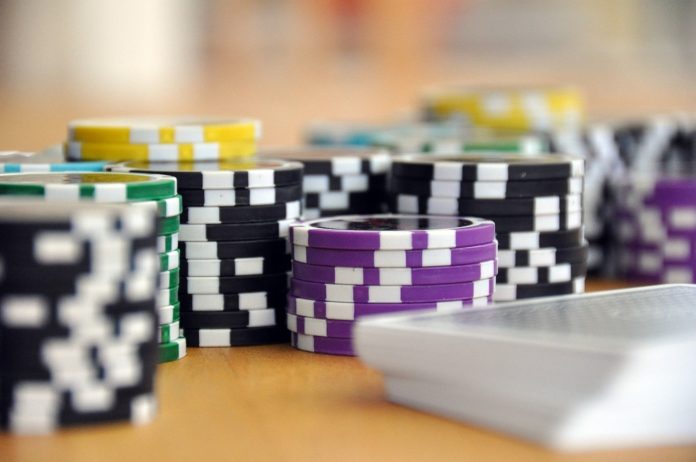
The house advantage, also known as house edge, refers to the statistical percentage that gives casinos a built-in monetary edge across all their games. This metric directly impacts your odds and overall chances of winning. By understanding how house edge works, you can make informed gaming choices and employ strategies to improve your odds where possible.
What Does House Edge Mean for Casino Games?
Casinos are for-profit businesses, not charities handing out free money. Their business model involves building in a mathematical advantage across all games that inevitably directs money from players to the house over billions of spins, deals and rolls.
While skilled players can overcome house edge in some games like poker or blackjack, slots and roulette involve pure chance. You cannot influence RNG outcomes or change inherent odds through skill or strategy. Over time, the house edge guarantees casinos, like Play Fina, turn an overall profit across all plays.
Without this built-in edge, casinos could not afford to operate. However understanding the house advantage helps players set realistic win expectations and make smart gambling decisions.
How House Edge Works
All casino games have calculable odds allowing mathematicians to derive the house edge – the average percentage of each bet the house expects to keep over extended play.
While chance determines actual outcomes on a spin-by-spin basis, over billions of bets, the house edge plays out predictably according to the law of large numbers. This law holds true even on variance-heavy games like slots and roulette.
Here is how house edge impacts different casino game categories:
Table Games
- Blackjack house edge ranges from 0.5% for perfect basic strategy players up to 5% for poor strategy. Advantage play can actually flip this edge against the house.
- Roulette house edge runs from 2.7% (European) up to 5.26% (American) depending on the variant played.
- Craps house edge runs from 1.4% (pass/come bets with full odds) up to 16% on certain prop bets. Smart betting choices reduce exposure to house edge.
Slots & Video Poker
Programmed with fixed payback percentages, these games feature house edges from 2% to 15%, disclosed in monthly reports to gambling regulators. High variance makes losses harder to track in real time.
Poker
Peer-to-peer poker features no house edge. However the house extracts money via time fees or rake, impacting win rates over extended play.
Understanding house advantage across game types helps players calibrate expectations. Various gambling strategies aim to reduce house edge exposure but the advantage can never be fully overcome on chance games like roulette and slots.
Over time, the house edge grinds down bankrolls, contributing to net player losses. Setting affordable loss limits becomes critical for responsible play in negative expectation games.
Tips to Improve Your Odds Against House Edge
While you cannot eliminate inherent house advantage, certain tactics aim to offset it as much as possible:
Select Games With Lowest Edge
Compare house edge across game variants when available. For roulette, choose European (2.7%) over American (5.26%) wheels. On slots, check monthly reports to identify lower-edge games close to the 2% minimum threshold. This reduces built-in disadvantage.
Use Optimal Strategy
In skill-based games like blackjack or video poker, learn and rigidly practice the optimal strategy to cut house edge and boost payout rates. Understanding game theory helps overcome inherent mathematical disadvantage.
Manage Your Money
Since house edge slowly erodes bankrolls over time, adopt a smart money management system. Determine an affordable loss limit before playing. Structure wagers properly for your budget. Avoid desperate all-in bets trying to recover losses which only accelerate house edge damage.
Take Advantage of Promotions
Loyalty programs, comps packages and gambling bonuses let you play at discounted rates, reducing effective exposure to house advantage. Just ensure favorable play-through terms for best value.
While the house maintains an inherent mathematical edge across all games, making smart choices helps players get the maximum entertainment value from their bankroll against negative expectation odds.
Impact of House Edge Over Extended Play
To demonstrate how house edge compounds over time, consider two players each with $1,000 budgets betting $10 per round across plays.
- Player 1 bets European roulette featuring a low 2.7% house edge
- Player 2 bets a high-edge slot at 10% average advantage
After 500 rounds, here is the expected outcome based on house edge:
| Player / House Edge | 2.7% (Roulette) | 10% (High-Edge Slot) |
| Rounds Played | 500 | 500 |
| Amount Bet | $5,000 | $5,000 |
| Expected Player Loss to House | $135 | $500 |
| Bankroll Remaining | $865 | $500 |
As shown, the lower 2.7% edge game left Player 1 with $865 after 500 rounds while the higher 10% edge game decimated Player 2’s bankroll down to just $500.
While actual variance means outcomes will differ, over billions of rounds the house edge math holds true. This demonstrates why minimizing inherent casino advantage is so important for preserving bankroll longevity.
Key Takeaways
- House edge represents the average mathematical advantage guaranteeing casino profits over extended plays
- While chance determines individual spin/hand results, house edge works reliably over billions of bets
- Game choice, strategy, bankroll management and promotional incentives help offset inherent edge
- Lower house advantage preserves player bankrolls better over time
Now that you understand key gambling metrics like house edge and RTP, you can make informed casino and gameplay choices to get the most entertainment for your gambling dollar. Awareness of built-in mathematical disadvantage allows setting realistic win expectations while having fun.




